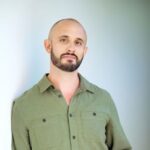Just because you are on holiday, it doesn’t mean your mind and body switch into holiday mode. We are all too familiar with the challenge of getting ourselves to stop thinking about work or checking our phones on the weekend.
Or even if we are able to stop thinking about work specifically, our mind stays in “productivity” mode but redirects that mode to household projects or other to-do items.
If we cannot shift out of that mode, we’ll return to work on Monday feeling as if we’ve had no break whatsoever.
So what happens?
Our brains can become habitualised and stuck in productivity mode. The sympathetic (fight or flight) branch of our nervous system is activated, maintaining a state of chronic stress in which our body is always expending energy instead of recharging.
In this state, over time, we become less creative, innovative, and energised, and more reactive, temperamental, and moody, which can eventually lead to burnout. But it doesn’t have to be that way.
Your nervous system has a complementary branch called the parasympathetic (rest and digest) which is responsible for your recovery and restoration.
The trick lies in how to intentionally design OOO to reactivate your parasympathetic nervous system so that you can truly feel renewed at the end.
A recent survey demonstrated that HR professionals are experiencing issues like depression, anxiety and symptoms of burnout at levels well above the average population. Thus prioritising how to optimise OOO for our mental and physical health is more important than ever.
The following recommendations are a blend of smart planning, perspectives, and practices that can set you up for the best OOO of your entire life.
Maximise pleasure, play, and presence
It may seem obvious, but for OOO to be restorative, it has to revolve around pleasure, play, and being present. These are the things that shift your nervous system from sympathetic mode to parasympathetic mode.
Most of us spend all our time on screens at work; we don’t want to do so while on vacation.
Often, we are tempted to use OOO time to catch up on home projects or other things on our non-work to-do list or use the time to distract and numb ourselves with mindless and disembodied activities like scrolling social media, playing video games, and watching shows.
There is nothing wrong with doing a small amount of such things while on OOO, but your focus should be on activities that bring you into the present moment, into your body, and into connection with yourself and others.
Leisure: Less is more!
It’s vital to organise your OOO around pleasure, play, and presence, but also essential to keep it leisurely. If you make lots of plans to fill your OOO, such as touring, social gatherings, activities with the kids, or other “to-dos,” you are setting yourself up for failure.
This may be hard to believe, but even if you enjoy those events and find them fun, they still require you to be “on” and in productivity mode.
My advice is to cut the amount you have planned by 50%. It’s important to use OOO to do things that you enjoy and bring you pleasure, but to also ensure spaciousness, non-urgency, and freedom from your clock and calendar.
To put it simply, one should never ever feel rushed or pressured during OOO if they want to really recharge.
Boundaries
You cannot bring work with you on OOO and, ideally, work cannot contact you. Anything work-related will keep you stuck in the sympathetic branch of your nervous system and do the exact opposite of recharging you.
Maintaining work boundaries is two-sided. One is to set a clear boundary with your employer, colleagues, and clients that you are not reachable and will not be responding to work-related matters during OOO.
The second, often harder bit, is resisting your own urge to ‘check-in.’ The strongest defence for this is to limit your access to your smartphone (see below).
Limit your access to your smartphone
Most of us spend all our time on screens at work; we don’t want to do so while on vacation.
Being on your phone, whether it be for work purposes, news consumption, social media, or other forms of distraction, is the most insidious agent in depriving us of quality OOO.
The phone is designed to stimulate you, keeping your sympathetic nervous system activated. Whether it be a stressful work email, a triggering news article, or a mind-numbing video game, all these things prevent you from being present, enjoying the leisure of your OOO, and connecting with your friends and family.
the goal is to shift your nervous system from chronic stress to relaxation
The best tactic is to simply not have your phone with you as much as possible. Leave it at home, in the car, in your purse, or give it to your spouse. Whenever it’s practical, don’t have it.
That being said, sometimes it’s impossible not to have our phone because we need to use practical apps like navigation or texting.
So, the next best thing are devices like The Brick which physically disable apps on your phone (like social media and email) but allow other practical apps to stay on. This prevents you from accidentally getting pulled back into work or other energy-sucking activities on your phone while still allowing you to use the features you need.
Mindbody experiences and practices
We most often plan our OOO around travelling, touring, and partying (drinking and eating). But if you really want to recharge, you may consider organising your OOO around true R&R.
Go to a retreat centre, spa, health resort, or other destination that revolves around helping you calm your nervous system, nourish your body, and reconnect with yourself.
There are many options all around the world that combine many of the best elements of a classic vacation, like great food and activities, along with a peaceful environment, meditation and yoga classes, and more.
Short of that, choosing to begin a yoga practice at a local studio, going to the spa for the day, or beginning a meditation practice with an app during some of the free time you have on OOO can significantly add to the restorative nature of your time off.
Final takeaways
Taking time off is essential for recharging your mind and body, but it requires more than just being away from work.
By intentionally designing your OOO to maximise pleasure, play, and presence, maintaining strong boundaries, limiting smartphone access, and incorporating mindbody experiences, you can ensure that your time off is genuinely restorative.
Remember, the goal is to shift your nervous system from chronic stress to relaxation, allowing you to return to work feeling refreshed, energised, and ready to take on new challenges.






